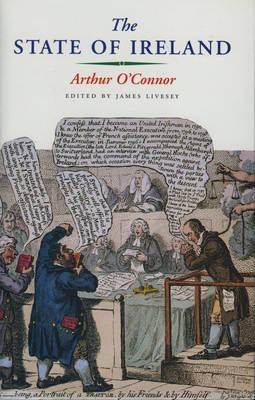
- Retrait gratuit dans votre magasin Club
- 7.000.000 titres dans notre catalogue
- Payer en toute sécurité
- Toujours un magasin près de chez vous
- Retrait gratuit dans votre magasin Club
- 7.000.0000 titres dans notre catalogue
- Payer en toute sécurité
- Toujours un magasin près de chez vous
Description
Arthur O'Connor was the most important conduit between French republicanism and Irish political radicalism in the late 1790s ... His State of Ireland, published in 1798, created a distinctively Irish language of radical democracy out of French sources, by fusing them with the local political tradition and Scottish political economy.' So writes editor James Livesey in his introduction to this new edition of The State of Ireland, first published in pamphlet form in 1798 by Arthur O'Connor, a prominent member of the United Irishmen. O'Connor brought to the revolutionary movement of the 1790s a mind honed on the ideas of Adam Smith - ideas that might not seem revolutionary today, but that had radical implications as adapted by O'Connor and applied to the bizarre political economy of eighteenth-century Ireland. As perhaps the most steadfastly anti-sectarian member of the United Irish movement, O'Connor viewed the vexed debates over 'Protestant liberty' and Catholic Emancipation as distractions from the fundamental questions of political and economic reform; he supported emancipation as a necessary but by no means sufficient element of a free, democratic Irish society. 'What O'Connor's work reveals to us', Livesey writes, 'is the breadth of vision within the United Irishmen and the novelty of their intervention in Irish political culture ... O'Connor's text deserves to find a place in the canon of classic political texts that have constructed and made possible, or even imaginable, Irish democracy.'
Spécifications
Parties prenantes
- Auteur(s) :
- Editeur:
Contenu
- Nombre de pages :
- 124
- Langue:
- Anglais
Caractéristiques
- EAN:
- 9781901866124
- Date de parution :
- 11-09-98
- Format:
- Livre relié
- Format numérique:
- Genaaid
- Dimensions :
- 140 mm x 225 mm

Les avis
Nous publions uniquement les avis qui respectent les conditions requises. Consultez nos conditions pour les avis.






